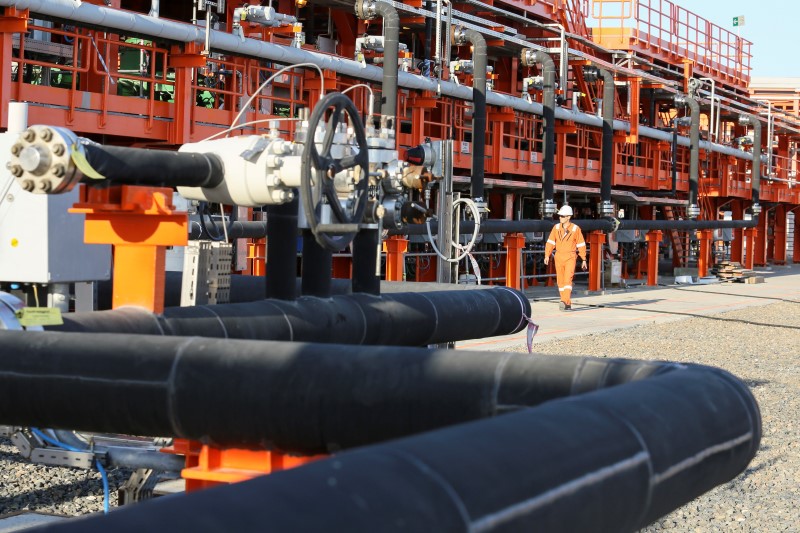By Geoffrey Smith
Investing.com -- Crude oil prices eased off overnight highs in early trade in New York on Monday, amid reports that various production facilities and refineries hit last week by Hurricane Laura will resume production in the coming days.
Refineries in Pasadena, Beaumont and Port Arthur – including the 600,000 b/d complex owned by Saudi Aramco (SE:2222) subsidiary Motiva – had all indicated a quick restart was possible at the end of last week.
However, Citgo and Philips 66 said that their facilities in Lake Charles, closer to where Laura made landfall, both said their restarts were likely to take longer due to damage sustained during the storm.
“Citgo cannot issue a restart schedule until the assessment is complete, but the company does not expect an immediate restart,” CEO Carlos Jorda said on Friday.
By 10:55 AM ET (1455 GMT), U.S. crude futures were up 0.4% at $43.16 a barrel, having touched a high of $43.57 earlier in the session, after data releases showing solid business activity in China and a sharp rise in Japanese industrial production in July. The international benchmark Brent was up 0.4% at $46.01 a barrel.
The squeeze in Gasoline RBOB Futures, meanwhile, continued to unravel with eye-catching speed. The contract was down 1.3% at $1.2320 a gallon, and has now given up all of the weather-related gains it made last week - and then some.
There was also an accelerated sell-off in natgas futures, as a sharp drop in forecast temperatures across the U.S. led to decreased expectations of demand for gas-fired electricity. Natural Gas Futures were down 5.2% at $2.52 per mmBtu.
Outside the U.S., the evidence increased that global demand is slackening somewhat as the economic recovery flattens out. Newswires reported that the United Arab Emirates national oil company ADNOC will cut its export allocations to all clients for October by 30%, a reflection both of weak demand, and the need for the UAE to compensate for past quota-busting under the 'OPEC+' deal on output restraint.
In addition, S&P Global Platts reported that bookings for Very Large Crude Carriers on the Persian Gulf-Asia route were at their lowest for five years, due to China easing off on imports after a couple of months of heavy opportunistic buying that aimed to take advantage of the collapse in prices in the second quarter.
So far only 36 cargoes have been covered with tonnage for loadings in the Persian Gulf in September, Platts reported. That's barely one-third of the usual volume in recent months.
